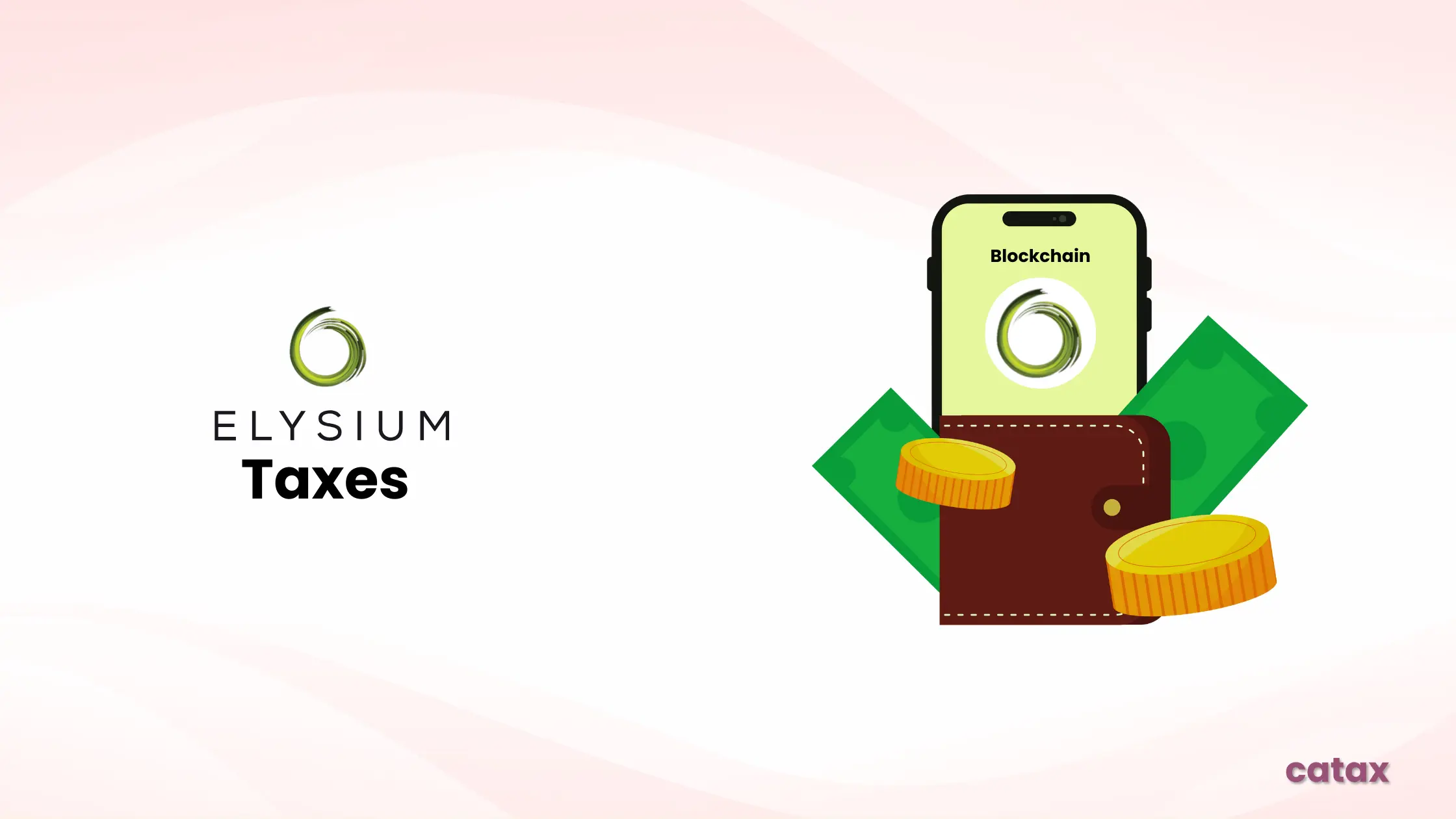Cryptocurrency tax rules differ across countries, and Elysium taxes transactions may be taxed differently based on local laws. Whether you buy, sell, trade, or stake Elysium, knowing how tax authorities classify these activities helps you stay compliant and avoid penalties.
This guide simplifies Elysium tax rules so you can handle your crypto taxes with confidence and stay legally secure.
- How to Connect Your Elysium Wallet to Catax?
- Are Elysium (ATOM) Transactions Taxable?
- Can You Deduct Trading Fees and Other Costs?
- How Is Elysium (ATOM) Taxed Based on Holding Period?
- How Is Staking Income Taxed?
- Can You Claim Elysium Losses for Tax Benefits?
- How to Stay Compliant with Elysium (ELY) Tax Rules
How to Connect Your Elysium Wallet to Catax?
To track your Elysium (ATOM) transactions and calculate taxes effortlessly, follow these steps to connect your wallet to Catax:
- Open your Elysium wallet or access a block explorer (such as Keplr, Cosmostation, Ledger, or any supported wallet).
- Copy your public wallet address from your Elysium wallet.
On Catax:
- Log in to Catax and select your country.
- Select Chain, then search for Elysium Wallet.
- Paste your public address and click Connect.
Once connected, Catax will automatically track your Elysium transactions and simplify your crypto tax reporting.
Calculate My Taxes ➤Are Elysium (ATOM) Transactions Taxable?
Yes, in most countries, Elysium (ATOM) transactions are considered taxable. Tax authorities may classify ATOM as a capital asset, property, or income, depending on how it is used.
When Do You Have to Pay Taxes on Elysium (ATOM)?
You may be liable to pay taxes in the following situations:
- Selling ATOM for a profit – If you sell your Elysium tokens for more than you paid, the gain is generally subject to capital gains tax.
- Trading ATOM for another cryptocurrency – Exchanging ATOM for Bitcoin, Ethereum, or other cryptocurrencies is typically a taxable event.
- Using ATOM for purchases – Spending ATOM on goods or services may trigger a taxable gain if the token has appreciated in value.
- Earning ATOM from staking – ATOM earned through staking is usually treated as income and taxed at its market value when received.
- Receiving ATOM as payment – If you’re paid in ATOM for goods or services, it’s generally taxed as income based on the fair market value at the time of receipt.
Because taxation depends on jurisdiction, always check the crypto tax regulations in your country.
Can You Deduct Trading Fees and Other Costs?
Elysium users often ask whether they can deduct expenses related to trading or managing ATOM. This depends on your local tax laws.
Some countries allow deductions for:
- Trading fees when buying or selling ATOM
- Network or transaction fees when transferring ATOM between wallets
Other jurisdictions may only allow:
- Deducting the cost basis (initial purchase price of ATOM) without permitting additional expense deductions.
Refer to your country’s tax code to determine which costs are deductible.
How Is Elysium (ATOM) Taxed Based on Holding Period?
Your tax rate on ATOM gains may vary depending on how long you held the tokens:
- Short-term holdings (less than one year) – Often taxed at standard income tax rates
- Long-term holdings (more than one year) – Some jurisdictions offer reduced tax rates for long-term capital gains
- Flat-rate systems – In certain countries, a fixed tax rate applies regardless of the holding duration
Understanding the tax implications based on holding periods can help you make informed decisions and potentially reduce your tax liability.
You can also check out our Country-Specific Guide for Crypto in Your country. This guide provides insights on regulations, tax implications, and compliance measures breifly explained for each country.
How Is Staking Income Taxed?
Staking Elysium (ELY) tokens can earn you passive income, but the tax treatment depends on your country. Some tax authorities require you to report and pay taxes when you receive staking rewards, while others only tax them when you sell or exchange the tokens.
How Countries Tax Elysium Staking Rewards:
- Taxed as income – In some countries, staking rewards are treated like salary. Taxes are due when the rewards are received and are taxed at the standard income tax rate.
- Taxed as capital gains – Other countries tax staking rewards only when they are sold. In such cases, you pay tax only on the profit from the sale.
Knowing when staking rewards become taxable helps you prepare for tax obligations. In some jurisdictions, rewards are taxable even if not sold.
Can You Claim Elysium Losses for Tax Benefits?
If you sell Elysium at a loss, you might be able to use that loss to lower your taxes—depending on the tax laws in your country. How Countries Handle Crypto Losses:
- Loss offsets – Some tax systems allow you to subtract Elysium losses from your total capital gains, so you’re only taxed on your net profit.
- Loss carryforward – If you have no gains this year, certain countries let you carry losses forward to offset profits in future years.
- Limited deductions – Some countries do not allow crypto loss deductions, which means losses can’t reduce your tax bill.
Accurate record-keeping of your ELY transactions is essential to claim these benefits properly.
How to Stay Compliant with Elysium (ELY) Tax Rules
To stay compliant and avoid penalties as crypto tax laws evolve:
- Understand how Elysium transactions are taxed in your country (capital gains, income, or business revenue).
- Maintain detailed records of all ELY activity, including buying, selling, staking, trading, and spending.
- Use a crypto tax tool like Catax to simplify tax calculations, reporting, and recordkeeping.
- Consult a tax professional if you’re unsure about your local obligations.
By staying informed and organized, you can handle Elysium taxes confidently and stay compliant with local tax authorities.
Book a Free Consultation Now →